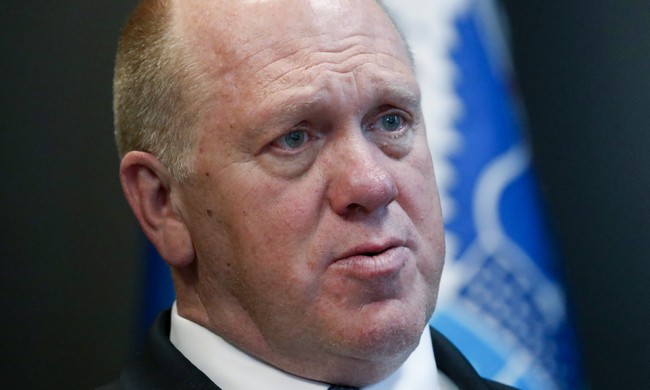Eagles' Victory Over Chiefs Sparks Controversy
Super Bowl 59 marked a resounding victory for the Philadelphia Eagles against the Kansas City Chiefs. Amidst the triumph, controversy and curiosity surround the game, as discussed by various experts.
Published February 12, 2025 - 00:02am

Image recovered from townhall.com
In a game that Philadelphia Eagles fans will likely remember for years to come, Super Bowl 59 culminated in a significant 40-22 victory over the Kansas City Chiefs. The Eagles displayed a dominant performance, particularly highlighting their formidable defense, which was vital in dismantling the offensive efforts of the Chiefs. This victory avenged the Eagles' loss in Super Bowl 57, where they succumbed to a late-game penalty that enabled the Chiefs to clinch the title.
The Eagles entered the game with a restructured defensive lineup, under the guidance of new coordinator Vic Fangio. Their efforts resulted in sacking Chiefs star quarterback Patrick Mahomes six times, preventing Kansas City's offense from gaining a significant foothold throughout the game. Both Jalen Hurts and the Eagles' offensive strategy were crucial in countering Kansas City's defense despite Mahomes' attempts to mount a comeback with multiple touchdown passes.
Additionally, the influence of place and culture emerged as a talking point among fans. The city of New Orleans, known for its strong ties to voodoo and spiritual practices, inadvertently wove itself into the narrative. Social media buzzed with speculation and humor surrounding the idea that external mystical forces may have played a role in Mahomes' performance and the outcome of the game, illustrating the intertwining of sport with regional folklore and superstition.
Across the United States, the buildup to this Super Bowl was characterized by predictions and analyses that largely favored the Chiefs, given their history and Patrick Mahomes' postseason reputation for resilience. However, the Eagles' defense was keenly aware of their own strengths and delivered a performance that many pundits hailed as one of the best in recent memory. Their ability to pressure Mahomes effectively without blitzing was a decisive factor in their success, showcasing a tactical depth honed over a challenging season.
Meanwhile, Chiefs fans were left to grapple with the end of their hopes for a three-peat championship win. The team's lackluster performance and Mahomes' uncharacteristic struggle revealed vulnerabilities in what has often been a juggernaut offense. Critiques of coaching decisions, player performances, and even external factors like the infamous impact of superstition and 'media curses' became central to the immediate post-game debrief.
The defeat resonated particularly with Mahomes, who, despite his historical accomplishments and talents, faced a defense he seemingly couldn't decipher. Post-match reflections on social media highlighted his frustration and determination to come back stronger, offering a somber yet optimistic view of future prospects for the Chiefs.
This Super Bowl also kindled fresh scrutiny and admiration for the use of Roman numerals in naming the games, a tradition that traces its roots to the original naming conventions proposed by the late Chiefs owner, Lamar Hunt. The intricate cultural tapestry that surrounds these games, from the sportsmanship on the field to the linguistic and cultural curiosities they inspire, adds another layer of richness to this annual sporting event.
The culmination of these plots and performances leaves both teams and their fans contemplating a series of what-ifs and celebrating their victories, however nuanced they may be. For the Eagles, this moment marks a reclaimed glory and promises of sustained excellence, while for the Chiefs, it serves as both a sobering lesson and a motivational cornerstone for the coming seasons.






